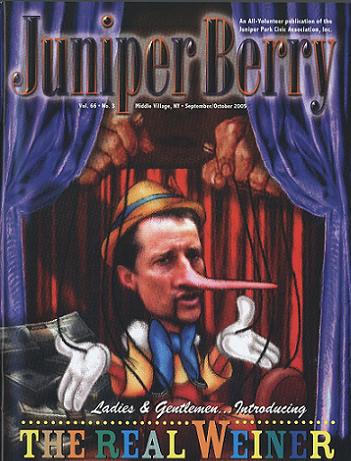Many of us worry how to save money, how to invest and have it grow for the future. We open bank accounts, buy homes, invest in the stock market and build our net worth. Then the problem becomes, how to dispose of it at death. For obvious reasons we procrastinate.
Increasing real estate values have made many otherwise average people into millionaires. Without a will, or other “final” disposition, the inheritances of many famous personalities were eaten away by taxes and attorneys fees. The beneficiaries of Elvis Presley, for example, received an estate reduced by 73%. In 1977, when the “king” died, his estate was estimated at $10 million The heirs got only about $3 million. Why? In short: probate and taxes.
1. Probate
If you don’t want the state deciding who receives your inheritance, prepare a will.
It is the surrogate court’s job in every state to help properly dispose of an estate. The court nominates a person, who will be responsible in executing the deceased’s wishes. With a valid will on hand, the task is simple. If there are no final dispositions found, the intastate laws of the state prevail. Every state’s laws are somehow different, but usually the estate will be divided between a spouse and children. If there are no children, it may go to a spouse and parents. If parents are deceased, their part may go to siblings, etc. It is interesting to note, that most states adopted laws against disinheriting a spouse.
Probate does not only cost money, but often due to family disputes, it takes a long time to settle. Take the example of the leader of the Grateful Dead. Jerry Garcia’s ex-wife argued her inheritance case for four years. This way she won $1.5mln.
A valid will should be signed and witnessed. There usually is a self-proving clause in there, saying that the witnesses saw the person sign it with sound mind and free will.
Discussing the probate, we should mention, that some property does not go through probate. If you have a retirement account, for example, after death, your money will go to the beneficiaries you’ve previously selected. The death benefit of life insurance policies and other insurance contracts (such as annuities) will also avoid probate. If you have bank or investment accounts held jointly with rights of survivorship, at death your share would automatically go to the other account owner. Usually the bank requires the death certificate and a letter of instruction.
While a will is a good starting point, it does not solve all of the problems related to disposition of the deceased’s property. One of these issues is privacy.
Probate process is a public process. In the appropriate public records anyone can find information on an estate value and how much each beneficiary received. This way we know of about estates of many famous people. It’s easy to find, for example, the fate of Marilyn Monroe’s estate. The actress’ royalties go to a person she’s never knew. The payments, reaching millions of dollars each year originally were bequeathed to her coach. Lee Strasberg was receiving them till 1982 when he died. After his death, the royalties went to his widow. Marilyn could have avoided this by preparing a trust.
2. Trust
If you don’t want strangers” doing your laundry”, prepare a trust.
Trusts are private contracts and avoid probate. They cost more to prepare than wills, but have more to offer. If Marilyn Monroe had a trust, the disposition of her estate would remain confidential. Her family would avoid the unnecessary media attention. Her estate including royalties, would be distributed exactly the way she wished. A well prepared trust contains instructions to keep the property in the right hands for years and generations to come.
Let’s look at another example: Mrs. Smith leaves her estate to a married son. Years later, his wife leaves him and takes one half with her. Mrs. Smith unknowingly enriched his son’s ex-wife. By utilizing a trust, instead of the will, Mrs. Smith’s estate could stay in “the family’s blood” and not go to a stranger.
It’s worth knowing how to choose a trustee. His or her job will be to carry out any instructions contained in the trust document. It should be a person with some understanding of financial and investment issues. The trustee should be characterized by integrity and competence. You may also want to choose someone without any conflicts of interest with the beneficiaries.
2. Estate Taxes
Proper planning may reduce estate taxes.
Discussing trusts, we need to talk about “credit shelter trust”. Often the most costly mistake, is the “I love you will”, or leaving everything to the surviving spouse. It’s even more important if the estate is valued at $1.5 mln or more in year 2005. Taking into consideration today’s skyrocketing prices of real estate, this amount is within reach to many. $1.5 mln is the amount in 2005 that will be exempt from the federal estate taxes. The IRS may tax the remainder estate as much as 47%. It is important to know, that there are no estate taxes on any property left to a surviving spouse. However, all taxes will be collected on the second spouse’s death.
Let’s look at an example: Mr. Smith owns his primary residence and a brownstone, for investment purposes. When he dies, his estate is valued at $1.7 mln. He has a will leaving everything to his wife. No estate taxes are due now. However, on his wife’s death, the federal estate tax is levied on her entire estate, which probably still contains the money from the husband. By using the “credit shelter trust”, $1.5 mln of the husband’s estate would escape taxation altogether. Trusts are relatively complex and require a consultation with an elder law attorney.
In summary, all of us should at least own a will. It will make it easier to settle an estate and therefore reduce the costs associated with probate. In cases where there are small children involved, you may specify a guardian, therefore avoiding one to be appointed by the court. Those, who would like to avoid probate overall, should consider a trust. Often the benefits of the trust outweigh the additional costs associated with its preparation. Good planning using a trust may reduce the estate taxes and make sure the property stays in the hands of the appropriate individuals. While the estate taxes are due to be repealed in 2010, few of us will know the day of our demise.
The information contained in this newsletter is for educational and informational purposes only. It does not consider your particular investment objectives or financial situation and does not make personalized recommendations. It is not intended to provide specific legal, investment, accounting, tax, or other professional advice. Individuals should consult with the appropriate professionals to help answer questions about their specific situations or needs prior to taking any action based on this information.
Arthur Dolega is a Certified Financial Planner® practitioner. He lives in Middle Village with his wife and two daughters. He practices out of his Rego Park office on Alderton Street and 63rd Drive.
Arthur develops and monitors investment strategies for individuals and small business owners for over six years now. His company, VISION Financial Services, assists in retirement, estate and business planning.
He also sponsors workshops on education funding for children.



